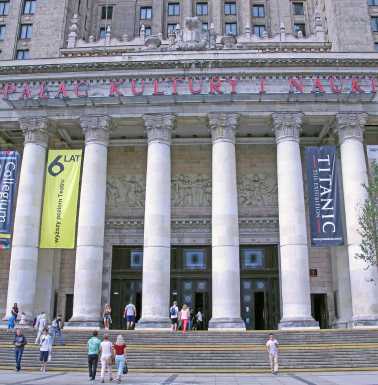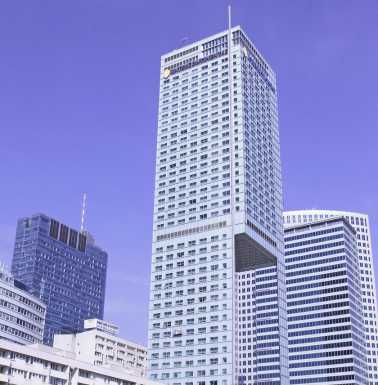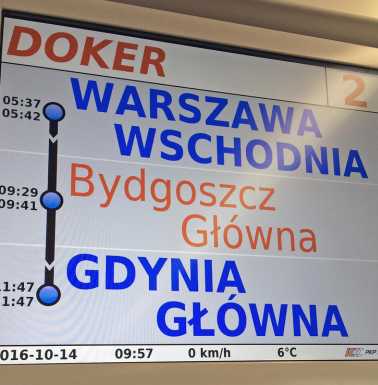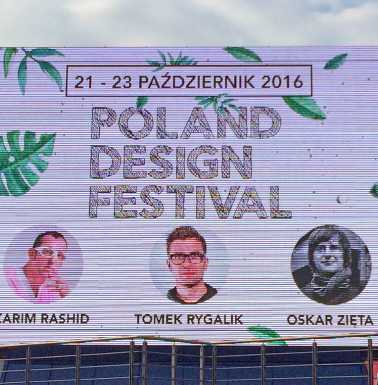Discovering Poland
I wouldn’t try covering a whole country in one blog post, but I’ve enjoyed discovering the cities of Poland and I want to share a few experiences. I’ve also posted notes about most of the cities I’ve visited.
As with all of my trips, the idea of visiting Poland was a sudden inspiration
On a trip to Newfoundland in spring 2016, I met a man on a boat excursion whose parting recommendation for me was to visit Warsaw and especially, he said, Kraków. That put Poland in my head. A little later, when I was pondering a trip to commemorate a family member’s birthday, Poland turned out to be the perfect choice because of a thesis he’d written in grad school. It was a good trip. I left Poland after the first visit feeling like there was much more to see. Then, while I was in France in the fall, some travel plans changed and I had 10 days on my hands. So I quickly booked a trip to Warsaw with the intention to see more of that city and then go north to Gdańsk.
After these two trips, I still have more to see in Poland. I feel like it’s about to be “discovered,” and before long I’ll find myself seeing more American tourists along with the Polish, other European and Asian tourists I saw. And, before I left I bought Polish Doesn’t Bite with the intention to double my Polish vocabulary (from, say, 20 words to 40) and learn enough sentences to check into my hotel in Polish next time. I got that challenge from a woman at my hotel reception when I came in with the book. I can’t wait to try.

Warsaw Palace of Culture and Science
Warsaw as a Base
Warsaw is one of the easiest destinations to get to by air, and it’s pretty much in the middle of Poland. So, unless you have a targeted plan, such as Kraków or Gdańsk only, Warsaw is a great place to start and end a trip. And I enjoy being in Warsaw. I decided to use the train to get around on both visits. The intercity train system is easy to maneuver and the longest time I spent on a single trip was fewer than three hours from Gdańsk to Warsaw. Then, you conveniently wind up right in the center of Warsaw at the Warszawa Centralna train station.
As for driving, it wasn’t a consideration because I planned to stay put in towns with relatively few days on the schedule to move from place to place. Besides, I read in the Warsaw In Your Pocket Guide that Poland has one of the leading rates of road fatalities in Europe. Enough said. It was the train for me.

New Warsaw
Food, lodging and getting around
Food. After my first trip, a friend asked me if it was all cabbage soup. No! Although I like cabbage soup. Poland has by all accounts a thriving food scene and I had more recommendations than I could use. And I was seduced by the milk bar. Before I arrived, I’d looked at TripAdvisor and Like a Local where I found cascades of high ratings and recommendations. There’s such a variety of restaurants that you can go in almost any culinary direction. And if your bliss is pizza, it’s a great favorite, so no worries there.
I didn’t worry much about food in Poland. I generally had good luck. All of the places I stayed offered breakfast and I usually alternated between cafés and bakeries for other meals. I dined from the grocery store, too, where I got mostly fruit and packaged salads. Some of these are not for the faint of palate. (I am known to eat “meals of desperation” now and then but usually stick to my café-a-day meal plan.)
Without chronicling every meal, I’ll just say I ate very well when I wanted to. In Kraków I ate dinner out at three hotel-recommended restaurants (I got pierogis at one but the pricey pierogis in Warsaw were more luscious). All of the meals were good. I had a fair number of sandwiches from kiosks, too. In Gdańsk, I enjoyed a bakery / tea room and small café, plus the inevitable sandwiches. But my real surprise was at La Petite Fleur hotel in the smaller city of Toruń, where I bought room and board, and had three wonderful meals a day. Polish inspired with a French flair, prettily served in the hotel’s cozy Gothic-era cellar.
Lodging. I like hotels for shorter stays, and the larger cities in Poland have all the big hotel brands. My home away in Warsaw is the InterContinental but there are other choices like apartments and Airbnb. In Toruń, hotels in the old town took some looking into and I was very happy with La Petite Fleur. In Gdańsk I chose the Mercure for its predictability and location. In Kraków, I stayed in the charming Cracowdays Hotel, just a short walk from the center of the old town. For this trip I looked at but didn’t choose Airbnb, and didn’t look for apartments otherwise. When I was picking up something for supper one evening in Gdańsk I met a woman from Taiwan who told me about the nice apartment she’d rented for a few days. Strangely enough, this woman and I had met earlier that day on the way to Malbork castle, an hour by train from Gdańsk. Imagine running into each other several hours later in a Gdańsk bakery. That’s one of the great things about travel.
Getting around – train. Warsaw’s main train station, Warszawa Centralna, is easy to navigate, and it’s right in the middle of downtown. Skip the information window and the long queue at the ticket windows. The Intercity office is across the terminal. Take a number and an agent will help you. The two times I used the office my agents were helpful, spoke pretty good English and humored me when I tried out some Polish on them.
First class wasn’t particularly expensive so I took first except on my day trip to Malbork. On a train with older carriages, first meant a closed compartment for six, except that there was only one other person in mine. On new express trains – the Pendalinos – we had open seating and a light meal served at the seat. Second class, which I took to Malbork, was comfortable but crowded, and I would have worried more about where I was going to put my luggage than my body on the longer trips. A big benefit of first class is storage space.
I didn’t use an Intercity office everywhere. In Gdańsk I queued up at the windows to change a ticket. The agent spoke English and all was well. In Malbork by contrast, I had to buy my ticket back to Gdańsk. The ticket agent was helpful but didn’t speak English and I could only say things in Polish like hello, thank you and where is the train station. I’d copied out the online timetable, but the agent consulted a big book along with her computer and proposed (in writing) times that weren’t at all what I wanted. I wrote the time I wanted. She pondered. We persevered and eventually I got a ticket for my chosen train, not long before it arrived. That’s what to do. Stay mellow and persevere. And we both kept smiling.
All of my train trips went smoothly, with only one delay on the way to Gdańsk, about a half hour at Bydgoszcz, where I spent my time practicing the pronunciation of Bydgoszcz. It’s actually not very hard to say.
Getting Around
Public transportation. Warsaw has great public transportation – trams, buses and a smallish metro. I bought weekend transit tickets or 24-hour tickets from machines. Easy. The machines have an English language option. Validate the ticket once on your first ride – nothing new for you here. Other ticket types are available. I also used trams in Kraków, mostly as a time saver or when I felt lazy and then necessarily to get to the old Jewish district of Kazimierz. Again, the vending machines were easy to operate (if you can find one) although a nice woman helped me when I found explanations of different ticket types inscrutable. I wasn’t in Gdańsk long enough to go farther out than the old town, so didn’t need the city’s public transport.
Warsaw taxis. The guidebooks I used are full of cautions about rogue taxis overcharging unwary tourists. Do take the guidebook warnings to heart, but don’t go off the deep end. The Warsaw airport has a display in baggage claim with names of “approved” taxi companies. Get in the taxi queue and approach a representative from one of those companies. The rep will summon the taxi.
(There’s also a train between the airport and Warszawa Centralna train station.)

On the train to Gdańsk
Other towns. An expat’s website had some flamboyant cautions about taxis in Toruń, including that some companies mimic the names of the “good” companies. That had me standing like a statue at the Toruń train station door, staring at taxis lined up in the rain, trying to pick out a good one from among the mimics. Nothing was clicking so I picked out a car I liked, which turned out to be Mercedes Taxi (that also was the same company my hotel called for me the day I left). I walked out to my chosen taxi while another driver waved and approached speaking in Polish. I ignored the waving man for better or worse and agreed on the price before I got into the Mercedes taxi. The guidebooks say make sure the meter is on. Take that advice to heart but in Toruń I just agreed on a price I thought was reasonable and didn’t care about the meter. Turns out the fare was the same as what it cost to return to the station when my hotel called for the taxi. No rip-off there.
As for Kraków, I emailed my hotel about taxis and they replied they hadn’t had any complaints about them. I didn’t have complaints, either.
By the time I got to Gdańsk, I had no more taxi angst. I never felt ripped off. The fares are generally not high, especially compared to most places I’ve lived in the U.S.
Language
I don’t speak Polish but I did study Russian way back and that helped when I did some “learn Polish” YouTube Design signlessons. But even without any background it’s not hard to learn the basics, please, thank you, I’m sorry, etc., and most important, learn how to say in Polish, “I don’t speak Polish.” And learn to recognize when after you say that, someone asks if you speak English. English is the most useful second language although try Russian if you know it.
Also see my Local Notes! Warsaw, Kraków and Gdansk, Toruń, Malbork.
Trip date: August and October 2016.

